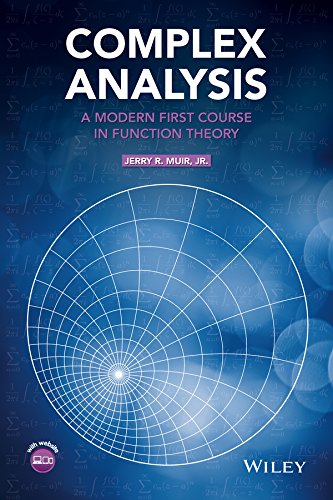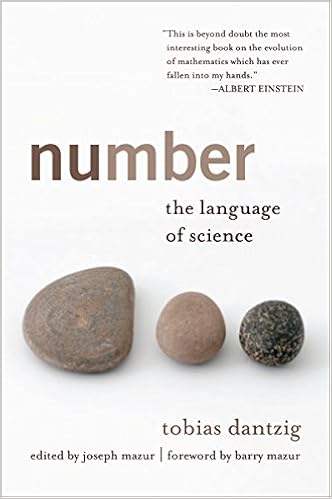"A little ingenuity is involved, but once a couple of tricks are learnt, it is not hard to show many sets of numbers are countable, which is the term we use to mean that the set can be listed in the same fashion as the counting numbers. Otherwise a set is called uncountable." (Peter M Higgins, "Number Story: From Counting to Cryptography", 2008)
"Algebraic symbols carry a universality of interpretation that allows them to be manipulated in a way that words cannot. Indeed, this was the key breakthrough that allowed mathematics to flourish in a way that was not possible until the advent of algebra. All higher mathematics relies on constant use of algebraic manipulation and would be impossible without it." (Peter M Higgins, "Number Story: From Counting to Cryptography", 2008)
"For mathematics to be applicable in any sense at all we need to be able to do something with it. In practice this nearly always means developing forms of calculation, and this imperative channels its practitioners into algebraic manipulations of one form or another and ultimately into producing numbers. To the modern mind, this might seem natural and inevitable." (Peter M Higgins, "Number Story: From Counting to Cryptography", 2008)
"If we refused to use complex numbers out of stubbornness disguised as some kind of bogus philosophical objection, a solution to a whole range of important problems would remain forever out of reach.[...] The plane of the complex numbers is the natural arena of discourse for much if not most of mathematics." (Peter M Higgins, "Number Story: From Counting to Cryptography", 2008)
"Nonetheless, some hesitation persisted. After all, the very word imaginary betrays ambivalence, and suggests that in our heart of hearts we do not believe these numbers exist. On the other hand, by calling every number representable by a decimal expansion real, we are making the psychological distinction more stark. Indeed the adjective imaginary is a somewhat unfortunate one - although an intriguing name, some students’ perceptions are so colored by the word that they consequently fail to come to grips with the idea." (Peter M Higgins, "Number Story: From Counting to Cryptography", 2008)
"Perhaps the greatest legacy of the solution of the cubic was the arrival, without invitation, of the imaginary number i into the world of mathematics." (Peter M Higgins, "Number Story: From Counting to Cryptography", 2008)
"Since they represent so natural a sequence, it is almost irresistible to search for patterns among the primes. There are however no genuinely useful formulas for prime numbers. That is to say there is no rule that allows you to generate all prime numbers or even to calculate a sequence that consists entirely of different primes." (Peter M Higgins, "Number Story: From Counting to Cryptography", 2008)
"The beauty of the complex plane is that we may finally carry out all our mathematical work in a single number arena. However, although there may be no pressing mathematical difficulty that is driving us further, we can ask the question whether or not it is possible to go beyond the complex plane into some larger realm of number." (Peter M Higgins, "Number Story: From Counting to Cryptography", 2008)
"The importance of continued fractions in approximation of irrationals by rationals is that the so called convergents of the fraction, which are the rational approximations of the original number that result from truncating the representation at some point and working out the corresponding rational number, are the best approximation possible in the sense that any better approximation will have a larger denominator than that of the convergents." (Peter M Higgins, "Number Story: From Counting to Cryptography", 2008)
"The rationals therefore also form a countable set, as do the euclidean numbers, and indeed if we consider the set of all numbers that arise from the rationals through taking roots of any order, the collection produced is still countable. We can even go beyond this: the collection of all algebraic numbers, which are those that are solutions of ordinary polynomial equations∗ form a collection that can, in principle, be arrayed in an infinite list: that is to say it is possible, with a little more crafty argument, to describe a systematic listing that sweeps them all out." (Peter M Higgins, "Number Story: From Counting to Cryptography", 2008)
"The simple algebraic numbers, like √2, seem closest in nature to the rationals, while we might expect that non-algebraic numbers, the transcedentals, to live apart and not to have close rational neighbors. Surprisingly, the opposite is true. On the one hand, it can be proved that any irrational number that can be well-approximated by rationals (in a sense that can be made precise) must be transcendental. Indeed this affords one of the standard techniques for showing that a number is transcendental." (Peter M Higgins, "Number Story: From Counting to Cryptography", 2008)
"[...] the use of complex numbers reveals a connection between the exponential, or power function and the seemingly unrelated trigonometric functions. Without passing through the portal offered by the square root of minus one, the connection may be glimpsed, but not understood. The so-called hyperbolic functions arise from taking what are known as the even and odd parts of the exponential function." (Peter M Higgins, "Number Story: From Counting to Cryptography", 2008)
"[...] transcendental numbers, those numbers that lie beyond those that arise through euclidean geometry and ordinary algebraic equations. [...] The transcendentals are the numbers that fill the huge void between the more familiar algebraic numbers and the collection of all decimal expansions: to use an astronomical comparison, the transcendentals are the dark matter of the number world." (Peter M Higgins, "Number Story: From Counting to Cryptography", 2008)
"Transcendental numbers then are numerous but exceedingly slippery. As a rule of thumb, a number that arises in mathematics is almost always transcendental unless it is obvious that it is not. However, showing that a particular number is transcendental can be exceedingly difficult. Number theory throws up endless problems of this kind where everyone feels sure what the answer must be but at the same time no-one has any real idea how it could ever by proved." (Peter M Higgins, "Number Story: From Counting to Cryptography", 2008)




